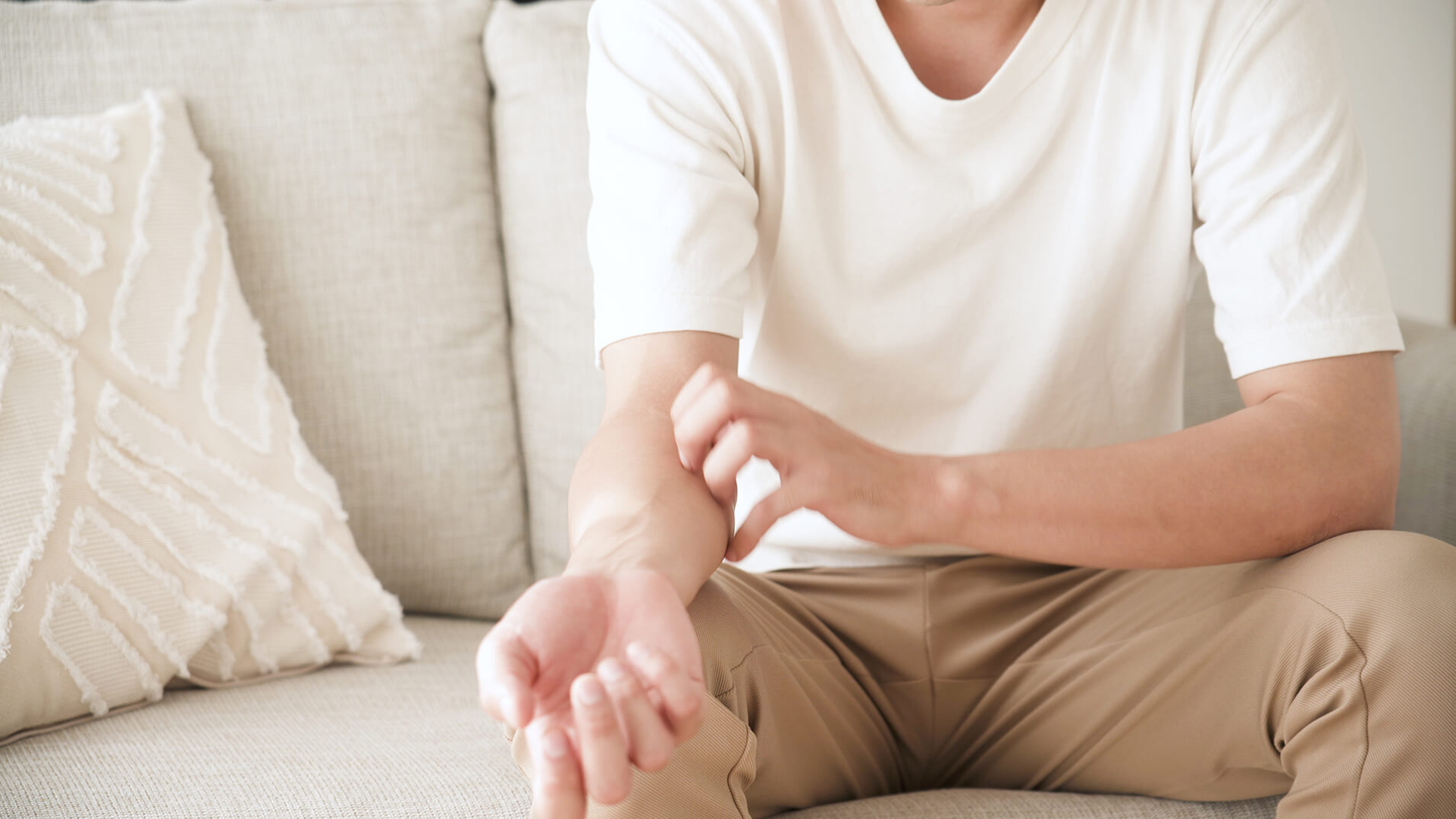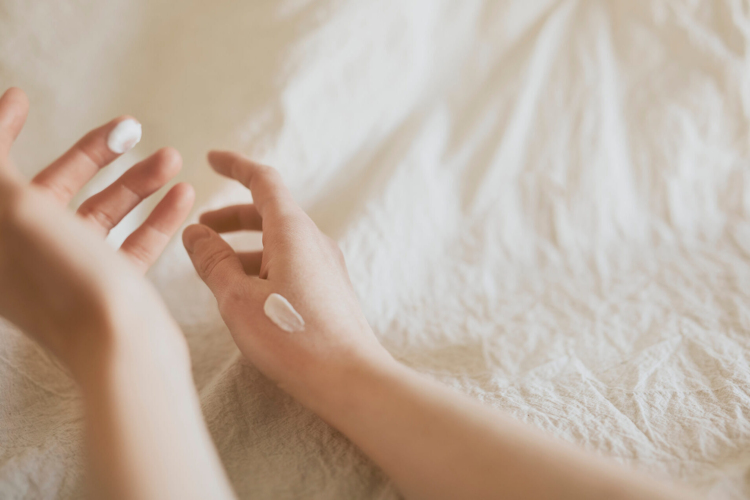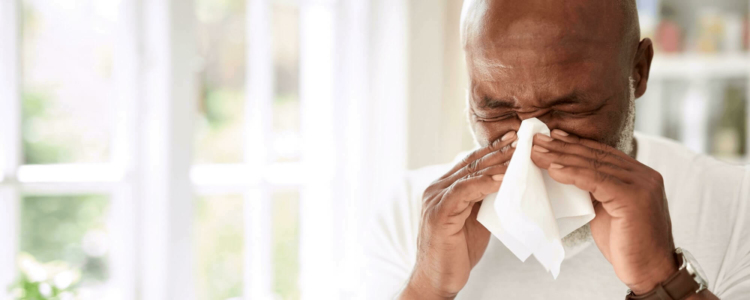Symptoms
The main warning signs of the condition are:
- Very dry, flaky red skin;
- Red, rough and sometimes scaly patches;
- Severe itchiness;
- Small blisters that look like pimples.
Even though eczema can appear anywhere on the skin, it often appears in the bend of the arms, or at the back of the knees. Eczema is sometimes seen on the face, especially on babies.
One thing is sure, it isn’t contagious, so it is impossible to catch it from a person with an eczema flare-up.
Causes
The causes of the condition are not necessarily clear and can vary depending on the type of eczema in question. The most common is atopic eczema (atopic dermatitis, or AD), which is related to a disfunction of the skin barrier. The skin doesn’t play its protective role, allowing allergens to penetrate, which causes flare-ups. The allergens responsible can originate from the air, animals, plants or food, but soap, perfume and sweat can also trigger flare-ups.
Certain environmental factors and heredity can also play a role in the appearance of eczema. If a close relative has it, there is a strong chance that you are at risk.
Food doesn’t necessarily trigger eczema, but eating certain foods, such as sugar, cow’s milk and bad fats can make the condition worse.
Treatments
Eczema is a chronic condition that can be relieved with various treatments. However, they don’t completely heal the condition, but reduce inflammation during flare-ups and/or protect the skin as it heals. The best prevention is to keep your skin well hydrated. Talk to your pharmacist for more information.
Here are some habits to develop to improve the condition of your skin:
- Limit baths and showers to 10 minutes and use only cool or lukewarm water;
- Choose cleaning and personal products that are gentle and fragrance free;
- Choose loose clothing made from cotton, hemp or linen, but not wool (eczema’s worst enemy);
- Apply cream or lotion (water or oil based) after bathing or showering to trap moisture. Talk to your pharmacist about what is best for you;
- Of course, avoid all substances and products that are known to trigger flare-ups: irritating textiles, detergents, foods or other allergens;
- Try not to scratch the affected areas.
Your pharmacist can recommend over-the-counter topical corticosteroid creams that can help relieve itching. If your case is more serious, your doctor can also prescribe stronger topical anti-inflammatories to reduce the burning and itching.
In the case of a major infection, taking antibiotics may be recommended. It is always important to follow the advice of a health professional.
This information is not a substitute for professional medical advice and Accès pharma affiliated pharmacist-owners cannot be held responsible for this information. The information was true and accurate at the time of publication, but it is subject to change.





